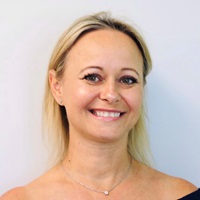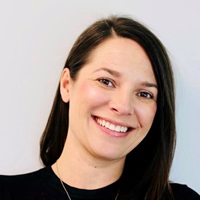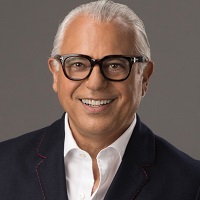
MyEDC gets you the answers you need
Join more than 30,000 Canadians who rely on MyEDC to grow their businesses with confidence.
Jan. 24, 2024

On this week’s Export Impact Podcast, Joe Mimran chats with Monika Buna and Rachael Petch, owners of Malarkey Kids, about their ventures into the world of baby products. The mompreneurs explain what it takes to develop 10 different product lines and grow their sales in international markets and offer tips on finding work-life balance as a mommy-run business. From Canada to France, Australia to the Middle East, this week’s episode follows Malarkey Kids’ growth, and the lessons and resources that helped them along the way.
Where to listen
Follow us on your favourite streaming platforms to never miss an episode of the Export Impact Podcast. Tune into our podcast for new episodes every second Wednesday at 6 a.m. ET.
Joe Mimran (00:02): Hi, I'm Joe Mimran and welcome back to the Export Impact Podcast, a series about companies taking risks, dreaming big, and making a global impact. My guests today are Monika Buna and Rachel Petch, the CEOs of Malarkey Kids. If you’ve ever had to deal with a teething baby, you know just how incredibly frustrated and helpless you can feel to watch your child suffer, especially if the only thing they want to gnaw on is their own hand. Enter the Munch Mitt, a wearable teether that can finally give your little ones some relief. The Munch Mitt is produced by Malarkey Kids, a self-described, mommy-owned and mommy-run company. I'm joined now by Monika Buna and Rachel Petch, the women in charge of Malarkey Kids.
I’d like to begin today’s episode by acknowledging that we’re recording from my office in Toronto, which is on the traditional unceded territory of many nations, including the Mississaugas of the Credit, the Anishnabeg, the Chippewa, the Haudenosaunee, and the Wendat peoples, and is now home to many diverse First Nations, Inuit and Metis people. We value taking this moment to deepen the appreciation of our Indigenous communities wherever we are, and to remind ourselves of our shared debt to Canada’s First Peoples.
Welcome to the show, Monika and Rachel, glad you could join us.
Rachel Petch (01:26): Thank you so much for having us.
Joe Mimran (01:28): Now, what is Malarkey? Why don’t you tell us what sort of products you manufacture? I did mention it briefly, but perhaps you can get into a little more detail on the product itself and how it came to be and the target audience that you’re after.
Rachel Petch (01:44): Malarkey Kids was developed in 2015 and it actually wasn’t Monika and I who developed the product. It was the previous owner, Melissa, and she developed it for her son who was teething and he was chewing on his hands, like you had said, and she couldn’t find anything out there that would help soothe the pain he was going through. So, she decided, “I’m going make it,” and she did. It developed in 2015. It’s a wearable teether that goes on baby’s hand—they teeth on it.
Joe Mimran (02:17): So, she designed the product originally?
Rachel Petch: Yes.
Joe Mimran: Were you guys with the company at the time?
Rachel Petch (02:25): Not at the time. The company started in 2015. I started working with the company in 2016. Melissa posted on Facebook Mommy Group that she was looking for some help. At the time, my son was about ready to go into junior kindergarten and I was like, I need the job, I want to get back to work. So, I applied. I got the job. We had two SKUs at the time, and shortly after that, Monika was hired. Now, we’ve got more than 100 in 10 different product lines.
Joe Mimran (02:55): Speak to me a little bit about the different SKUs that you have. You have more than 10 product lines. How are those different? Is it still just the one teether idea or do you have a whole host of products that go with that teether product?
Rachel Petch (03:10): They're all teether based. We have the Munch Mitt, which was the very first product. We have bibs. We have other teether rattles. We have tethers with teethers attached to them. We have a mini mitt, which is a two-in-one. It's an anti-scratch plus a teething mitten, which is very unique and different in the market.
Joe Mimran (03:31): It’s everything you could put in your mouth then as a baby. Is that it?
Rachel Petch (03:36): Yes.
Joe Mimran (03:36): That’s so interesting. And how do you two work together? Who does what? Monika, when did you join the company?
Monika Buna (03:43): I joined just a few months after Rachel. I think why we work so well together is because we’re literally polar opposites. She’s got that creative mind, you know. She’s the people person and remembers everyone’s name and dog breed and how many children they have. Whereas, I’m more on the operation, the numbers, and Excel spreadsheet side of things. So, we work really well. She’s strong in the departments I’m not, and vice versa. When the opportunity arose to buy the company, it was just natural for us to buy it together 50-50 because I couldn’t do it without her and she couldn’t have done it without me.
Joe Mimran (04:22): I think a lot of these types of consumer-based businesses need that left and right side of the brain to really work well. When you could find that partnership, I think it creates a bit of magic, which is what you guys have been able to do. But it was a big risk. I mean, how difficult was it for you to buy the company and why did the original founder want to get out of the business at such an early stage?
Monika Buna (04:48): She went through a really tough time just as COVID-19 started. She was diagnosed with cancer and was battling that for just over a year. And once she was finally cancer-free, about maybe two years after diagnosis, I guess she realized that there’s just more to life and she wanted to spend more time with her family. And her heart just wasn't in it anymore. It was a little too much. So, when she approached us and we said, “I want this to stay in the family and I don’t want it to be torn apart by a big conglomerate.” We sat down, we talked about it, and we looked at the numbers and because we’ve been essentially running it for a number of years, we knew the ins and outs of it and it was such a smooth transition. It was very easy to take over because nothing really changed. The operations didn’t change; the leadership structure didn’t change; the employees didn’t change; nothing changed. It was just passing on the torch so, it was quite easy,
Joe Mimran (05:48): But you certainly had to go out and raise capital in order to do that. How did that process go and how easy was it for you to get the capital together?
Monika Buna (05:59): We did use quite a bit of our personal capital, but RBC helped us immensely by giving us the rest of the loan that we needed to purchase the company. They did certainly do their due diligence. I mean, the application process was extensive, but they were very supportive, were super proud of us, and at every chance they had, they would give us education or literature or just actually guide us through it step-by- step because we’ve never done something like this before. It was very fortunate that we had such a great team of financial advisors and accounting, as well as their legal team that taught us essentially what the whole process entails.
Joe Mimran (06:40): That’s fantastic. How many employees did you have at the time when you bought the business?
Monika Buna (06:46): I think that there were four. We did have about 10 prior to COVID-19, we had to downsize during COVID just to keep the doors open. Just before we took over, there were seven of us and now we’re down to five.
Joe Mimran (06:57): Wow. And speaking of COVID, I’m sure you had supply chain issues, like so many other people. There was all of these supply chain issues, the cost of bringing goods over, factories that were closing down. How did you manage through that and what did you see in your e-comm sales during the COVID period? Did they tick up dramatically during that period?
Monika Buna (07:22): With regards to logistics and spring in inventory, that was very difficult. A container that used to cost us maybe $3,000 was now $25,000 to bring in. So, our margins were literally non-existent. We were just trying to break even at that point, as well as stay afloat as long as we could until things settled down. We were without inventory rates; I think it was for an entire first quarter at least, because we couldn't get the inventory in. There were rolling blackouts in China where our products are manufactured. The factories were getting shut down because of the outbreaks, but we did what we could and we sold what we could. I don’t think there was much difference with our e-commerce, but that’s not where we shine.
Rachel Petch 08:11: Yes, e-commerce has always been a hard one for us. The direct-to-consumer markets has just been hard for us to break into, but luckily, we do have our big-box flyers. We’re in Target in the U.S. and Walmart Canada, and Bye-Bye Baby and they kept us alive during COVID and they were able to switch and pivot to online sales. So, our smaller retailers were still ordering a little bit, but we had the big guys that backed us up and thank goodness for that because we made it through.
Joe Mimran (08:43): Right. And are you mostly in the U.S.?
Rachel Petch (08:46): Yes, most of our business is done in the U.S.
Joe Mimran (08:49): And was it always mostly in the U.S.?
Rachel Petch (08:52): Yes. It was easier for us to break into the U.S. than it was in Canada. Getting retailers to take in Canada has always been a little bit of a struggle. We did have Toys”R”Us and we do have Walmart Canada, but Canada’s trickier for some reason.
Joe Mimran (09:09): Wow! That’s amazing. Now, you’re involved in baby products and I know that baby products generally require a lot more compliance than other products. I’d love to hear how you navigate all of that. Given the number of factories that you probably are operating out of, the number of SKUs and the fact that it’s always touching their mouths. How do you deal with all of those issues?
Monika Buna (09:35): We take the compliance and testing quite seriously because it’s a baby product and it does go into the baby's mouth. The bigger retailers, especially, are a lot more strict when it comes to that. So, we use a third-party quality control company that inspects all of our purchase orders and we ensure that all the safety testing is completed through another third-party laboratory. They’re impartial, they’re not ours, they’re not factories, they’re third-party. And we’re so stringent that we even test for EU standards, which are the hardest tests to pass. Right now, we test for Australian standards, Canadian standards, U.S., as well as European standards. And when we pick up new markets, then we’ll test for those as well.
Joe Mimran (10:25): That’s really good. And as you design new products, how do you determine what new products you want to bring to market? What’s the process you go through for bringing new products to market?
Rachel Petch (10:36): Because of COVID and the lack of sales and buying the company, we’re going very slow on new development. We don’t want to get in over our heads and spend too much money and take on more than we can chew at this point, but we do want to focus on expanding our market. So far, we’ve done a lot in the teething space and the baby space. We want to expand on that and we want to grow in more of a toy category. So, right now, we’re looking at developing more of a toy, but still being for toddlers, so we can expand our market. Because we’re finding that when we go to trade shows and we’re meeting new retailers, we’re finding that people kind of walk past us a little bit because they’re like, “Oh, we don’t have a baby section.” They do more toys. So, now we want to expand on that and try to tap into that market a little bit more.
Joe Mimran (11:35): How does that break down between big-box retailers and independent or smaller chains? How does your business break down? Is it kind of the 80-20 rule?
Monika Buna (11:45): Revenue-wise, we’re mostly big box. We weren’t before. When the company first started, for the first three years or so, we were mainly small retailers. And as we started picking up the big-box stores, like the Targets and Walmarts and Bye Bye Babies in Nordstrom, we started to grow in that area a lot faster. But having said that, we accommodate our smaller retailers because we feel that they need a little bit more support to compete against the big guys. What we do is we create exclusive SKUs for Walmart, exclusive SKUs for Target that don’t directly compete with some of the SKUs that all of our smaller retailers have. If you want to get a certain mitt or a certain patent of our Chew Cube, we can only get it at the smaller retailers. But if you want our standard mass production SKUs, then you can go to Target and maybe there will be a bit of a price break, but it might not be the most sought-after colour at the moment because they pick a colour and they stick with it for an entire year.
Joe Mimran (12:48): It sounds like you’ve got a very lean team for such broad distribution. Do you use a third-party distribution? Do you do your own shipping?
Rachel Petch (12:58): We do our own shipping in Canada out of our warehouse here in Burlington, but we do have third-party company in Buffalo, New York that does all of our shipping outside of the U.S.
Joe Mimran (13:13): Do you keep a lot of inventory on hand?
Monika Buna (13:16): We have to have a supply of at least six months’ worth of inventory because we pick up new contracts monthly and we don’t have the stock to supply them for at least six months before I can get another container in and they might not take on that SKU. It's easier to supply the smaller guys because they’re ordering smaller quantities. But if we don't have that six-month supply in case, you know, a Nordstrom comes by and says, ”OK, we’ll take this SKU,” we have to have that supply ready for them. So, most of our inventory is in Buffalo.
Joe Mimran (13:47): It sounds like you’re really growing. How are you keeping up with the growth?
Monika Buna (13:52): I think our standard operating procedures don’t really change from one client to the next. We’ve got a company that does most of the big-box stores where everything is automated now, so it’s not like we have to process each order by hand. Typing it in the data entry is a little bit more streamlined. That helps. Technology is our friend when we actually learn how to use it and understand it; it can get a little daunting. But we do use distributors outside of the U.S. and Canada. We sell it into Australia, France, Spain, a few other countries. And we rely on the distributors there to do what we do here based on the different language barriers and legal barriers and customs barriers. We give them a really great price point on the product, but they have to manage everything within their country, so that does help as well.
Joe Mimran (14:49): Oh, I’m sure it must help a lot. And it gives you that extra volume, so that you can negotiate better prices with the factories, presumably. Just switching gears a little bit, what do you do on the marketing side? How do you manage that piece of it? Again, is that all done internally with your small team?
Rachel Petch (15:06): I did try to do that and I couldn’t figure it out. For the life of me, I don’t understand Instagram. I don’t understand TikTok. So, we did hire a third party. We have a girl who handles all of our social media because we just assumed a lot of debt when we bought the company. We don’t have a huge, actually, we have no budget for marketing, so we don’t spend any money on ads or the pay-per-clicks or any of that. We just use user-generated content. And we really love the user-generated content because our followers, they really relate to it and they love to see it. We repost everything that our customers are posting and tagging us in. We use our own lifestyle photos that we’ve taken over the years. But yes, it’s a whole different world and a full-time job.
Joe Mimran (15:57): And how many followers do you have?
Rachel Petch (15:59): We have 103,000 on Instagram.
Joe Mimran (16:02): Very good. That’s very good.
Monika Buna (16:04): We do also rely on our sales rep groups, as well, especially in the U.S. We provide them with all the material they could possibly want for marketing purposes: pictures, videos, catalogues, anything that they want and they distribute it among their clients.
Joe Mimran (16:28): Do you go to the trade shows yourselves? And how many different trade shows do you attend in a given year?
Rachel Petch (16:34): Well, we haven't attended any really since COVID. This is our first year. So far this year, we’ve been to the Atlanta market, the gift show. We’ve done Toy Fest West in Las Vegas. We go back to Las Vegas next month for a non-foods show, which is going to be really exciting for us because this is going to open some doors that we haven’t been able to get into. This is like a grocery, kind of pharmacy group that we’re becoming a part of. We’re really excited about that. And then we’ll do Astra, which is a specialty toy show and New York Toy Fair. So, we do about, I don't know, five to six shows a year. And then we’re hoping to do some international shows in Germany in 2024.
Joe Mimran (17:18): Oh, so you’re going to go international. Tell me, in terms of continuing to export, what new countries are you looking at? What help are you getting from different groups?
Monika Buna (17:30): Well, we’ve decided to focus on trying to get into Mexico for this next 12-month period. And we’ve spoken to TCS who will be introducing us to some boots on the ground out in Mexico who can help us get some market research, meet some companies that will perhaps help us with the social media and maybe even introduce us to some buyers or distributors. So, that’s going to help. Plus, we’ve spoken to people who could help us set up an Amazon page directly in Mexico, in Spanish and all of that. They’re our neighbors, so we definitely want to tap into that market. We did have a small presence there a few years ago, but it just kind of died with our distributor. I think he retired and so the market retired with him and now we’re just looking to get back into it.
Joe Mimran (18:19): That’s great. Well, it certainly sounds like you’re making quite a global impact. If you think about where you are now, you’re in Australia, you’re in Spain, you’re in, did you say France?
Monika Buna (18:31): Yes. Hong Kong, UAE, quite a few Middle East countries, actually. We’re in Switzerland, in Sweden.
Joe Mimran (18:39): How did you meet and engage to find distributors in each of these countries?
Monika Buna (18:44): We went to Cologne. There’s a trade show called KMJ. We’ve been doing that one for years. And we usually set up in the U.S. Pavilion because it’s a little bit larger than the Canadian one. We just set up and meet people who just walk by and see our product and stop and talk to us. And that’s how we found every single one of them. Actually, there was a couple who we found during New York Toy Fair and ABC in Las Vegas.
Joe Mimran (19:10): And are those shows geared to the baby market or are these general shows, like you mentioned the KMJ in Cologne?
Monika Buna (19:19): It's mostly children, babies and toys.
Rachel Petch (19:23): Yes, the Toy Fair in New York City, that one is more toy, so that’s got a lot of bigger brands and there’s only one aisle for baby, but we do try to stick within the baby space.
Joe Mimran (19:34): That’s a lot of travelling that you’re going to have to do. How do you split that up between the two of you? Who decides who goes and who stays, or do you both go?
Rachel Petch (19:44): We both go for now. We’re hoping maybe in a couple of years, we can start trading off or maybe we’ll be able to have some extra employees who can go do some of our travel for us. But we’re using this opportunity to really connect with everybody again because we’ve felt since COVID and the world shutting down and not being able to get out there, and especially in Canada, we were locked down for a lot longer than they were in the U.S., so we need to rebuild those relationships and get back out there. And now that Monika and I own the company, Monika needs to have a presence because she was only doing international shows before, whereas I was doing all of them. I know all of the retailers, I know all of our sales reps and I know all of the buyers, but Monika hasn't really gotten there yet. So, it’s really a good opportunity for her to go out and meet everybody and put a face to a name and build those relationships up.
Joe Mimran (20:35): Sounds amazing. How many sales reps do you have?
Rachel Petch (20:38): They’re all independent. We work with a number of different groups in the U.S., so we have a sales rep group that’s in the south, and then we have another one that’s in the New York area. And then we have another one that’s in California. We have all of these different groups that work for us and we pay them on a commission basis, but they go out on the road and they show our products. They bring us retailers.
Joe Mimran (21:01): That’s fantastic. And you have this connection with moms. Tell me a little bit about this momcommunity and the power of that community and how that has helped your business grow.
Rachel Petch (21:14): Word of mouth. Word of mouth is the best kind of advertising. And you’ve got one mom who posts a picture of her baby using the Munch Mitt or a Chew Cube, and they see their baby loving the product. They talk about how great it is. I think people really love the fact that we’re women and we own a company and we create these products and we help each other out. I think that we get a lot of extra support because of that, because we're women-owned and operated and we’re moms ourselves, so we understand the need for these products, too.
Monika Buna (21:52): Yes, the women who work with us and for us are moms as well, and we develop this culture in the office, as well. It revolves around being a mom. We come to work after you drop off your kids and you leave before you have to pick them up. And that’s just that work-life balance that we’ve grown accustomed to and it works. It really works.
Joe Mimran (22:10): It sounds like it’s working extremely well. You’re building a unique culture and that’s quite amazing. If you have anything that you wish you had gotten advice on prior to starting on this venture, what would that advice have been?
Monika Buna (22:25): I would have loved to have taken graphic design courses prior to the venture. It’s something we’re constantly needing and needing to outsource, so that’s something that would be great to have in-house. We’ve got someone who’s an amateur graphic designer who helps us come up with the concept and then we have to outsource to get it done. You know, print-ready or marketing ready. But I wish I had known that.
Rachel Petch (22:55): Yes, and I think we would’ve spent money differently. I think there are just a lot of different things that we could have done. We’ve made some mistakes along the way, even before we took over the company, launching a product before it was ready, and then the product was on hold for two years, making sure that the products are tested before we’ve released them to the market. So, there’s been a lot of mistakes. I think maybe just listening to people a little bit more and trusting other people’s opinions. That’s something that Monika and I are definitely going to do.
Joe Mimran (23:25): Well, making mistakes is really what an entrepreneur’s life is all about. And sometimes you learn, I think, more from a mistake than being advised.
Rachel Petch (23:37): Absolutely.
Joe Mimran (23:38): But it sounds like you’re on such a great track to grow your business. What is your biggest challenge today? I know that you mentioned inventory and keeping up with sales. What is one of your other biggest challenges today?
Monika Buna (23:52): I think our biggest challenge right now is purchase order financing. When we’re bringing in six months' worth of inventory for a Target, for example, that can be up to a quarter of a million dollars. And because the terms with the factory are different than the terms with the buyer, it doesn't usually work in our favour. To have a little bit more help in the financing department, so that we’re able to keep our inventory levels right where they should be, would be a great big help. And EDC is willing to help. We’ll be going through that application process as well.
Joe Mimran (24:29): What’s the goal? What’s next? How are you going to conquer the world? What are your plans?
Monika Buna (24:37): The first thing is we have to pay up all the debt and then we hope to launch some new products and really get back out there and have something different and appeal to a different kind of market and continue to grow and thrive. I don't think Rachel and I are the type of people who want to conquer the world. We don’t want to take over the entire baby department, baby teething department. We just want to find our little place of heaven, our little niche that we can be comfortable in and have that work-life balance at the same time, bring joy and relief to millions of babies around. I don't think our ceiling is too high. I think we’re pretty realistic in that department.
Joe Mimran (25:19): Well, that’s wonderful. It sounds like you’ve built a wonderful business. Sounds like you have a wonderful relationship. Sounds like you’ve got a following that really admires your product and the culture that you’re building around the product and the brand. It sounds like you’re going to be in business for a long time to come. Very proud of what you’ve accomplished. Really great to see two entrepreneurs, female or not, you’re great entrepreneurs and you really embody what entrepreneurship is about and the ability to export the way you have is really to be commended.
Not easy to deal in all of these different countries with all of the complexities that are involved--financing the business, marketing the business, doing it with a very small team. Kudos to you guys for doing such a great job. It’s really a pleasure to be speaking with you, Rachel and Monika, today and Malarkey Kids, what a wonderful business. Thanks for joining us today. Great to hear your story.
Rachel Petch (26:19): Thank you.
Monika Buna: Thanks.
Joe Mimran (26:21): Thanks for joining us today on the Export Impact Podcast. If you enjoyed today’s episode, we’d love for you to subscribe, rate, and leave us a review on your favourite streaming platform. See you back here in a while.
Outro (26:37): This podcast is for information purposes only and doesn’t constitute any form of advice or recommendation whatsoever; whether accounting, financial, investment, legal, tax, or other personal, commercial, or professional advice. EDC hasn’t independently verified any of the information communicated herein and makes no representation, warranty, or guarantee whatsoever express or implied about the content, which shouldn’t be relied upon in any way by anyone for any purpose whatsoever. EDC accepts no responsibility and will have no liability whatsoever for any damages or other losses suffered as a result of this information, its use or reliance thereon by anyone and EDC has no obligation to update or correct any of the content.
This podcast isn’t a substitute for due diligence and the audience should seek their own independent professional advice in respect to the contents of this podcast or any other related matter. In addition, this podcast shouldn’t be construed in any way as an endorsement or a recommendation by EDC or any form of promotion offered to sell or recommendation of any company, product, or service. While the host and/or guests are customers of EDC, the views expressed herein aren’t those of EDC, our directors, officers, employees, affiliates, or subsidiaries.

Guest
CEO and Partner, Malarkey Kids

Guest
CEO and Partner, Malarkey Kids

Host
CEO of Joseph Mimran & Associates Inc., founder of Club Monaco & Joe Fresh, and former Dragon on CBC’s Dragons’ Den

Join more than 30,000 Canadians who rely on MyEDC to grow their businesses with confidence.

Learn how to select, execute and optimize the right expansion strategy for you and your business.

Let us work with your financial institution to help you get the financing you need.